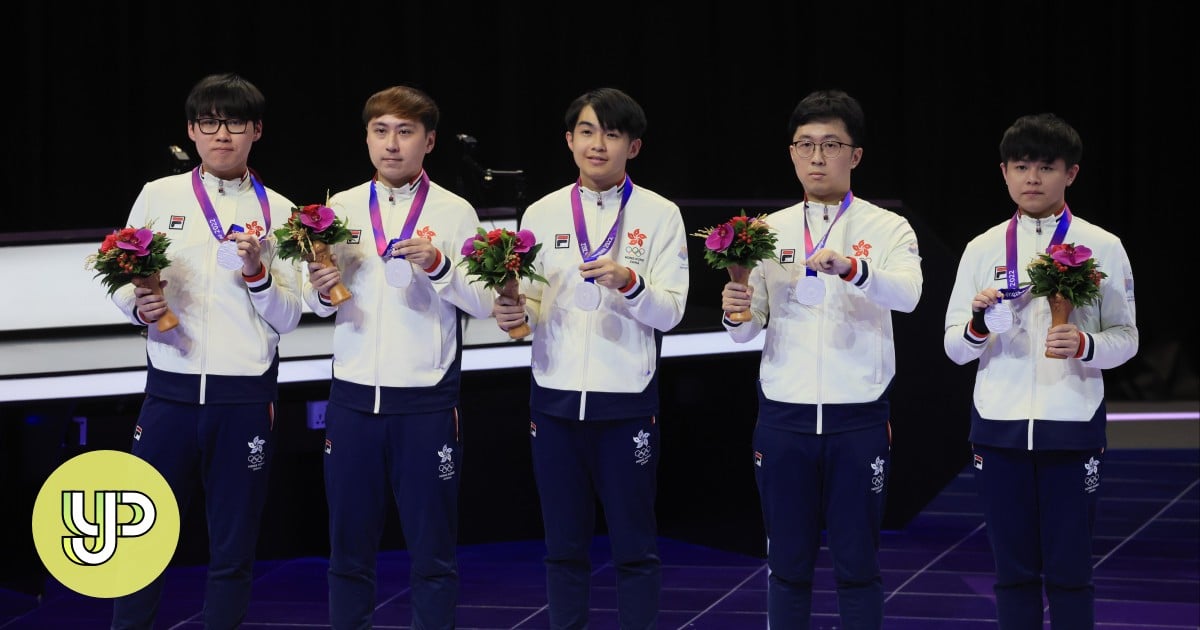Five months prior to the commencement of the esports tournament at the Asian Games in September, the video game they’d be contending in, Dream Three Kingdoms 2, was unfamiliar to Hong Kong’s team.
Little did they anticipate that their endeavor would result in the city’s first medal in esports.
“We never initially aimed for a medal, but we took the opportunity to represent our city and take part in the inaugural esports event at the Asian Games,” expressed Jazkit Chan Cheuk-kit, the 33-year-old team leader of the five-strong team.
Despite gendered stereotypes, female gamers communicate their optimism for women in esports
Esports was featured as a show sport at the 2018 Jakarta Asian Games, but it made its official debut as a medal event at the current year’s Games in Hangzhou.
Out of the seven games included in the Asian Games, Dream Three Kingdoms 2, a 3D multiplayer battle arena famous in mainland China, was the least known to the Hong Kong team.
However, in May, their head coach suggested to Chan and his comrades to take up this game due to its similarities to League of Legends (LoL) – a prominent battle arena they were all already familiar with.
Chan, also the manager of Hong Kong’s professional LoL team, Frank Esports, shifted to being a player and trained on Dream Three Kingdoms 2 with his team members, all of whom are skilled LoL gamers and intermittently play esports.
The Hong Kong team competes in the Esports – Dream Three Kingdoms 2 Final at the Asian Games. Photo: Sports Federation and Olympic Committee of Hong Kong, China
The 28-year-old coach, Martin Yau Man-tin, revealed the hurdles they encountered: “As this game is mostly popular in mainland China … there weren’t many resources or footage available on YouTube, so we had to research outdated leagues or contests on mainland platforms.”
Regardless, their determination thrust them into the final after beating teams from the Philippines and Thailand, although China ultimately secured the top spot.
Reflecting on their silver medal, Ivan Law Hing-lung, a 25-year-old team member stated, “During our off hours, we put most of our time in familiarizing ourselves with the game and practising till midnight.”
“It was a challenging journey but … the medal demonstrated that all the hard work was indeed worthwhile.”
Defying stereotypes: how gamers with disabilities in Japan are pushing the boundaries in esports
The struggles of becoming a professional
Chan, who started esports at 22 after quitting his job and unlike Law and Yau who were introduced to esports during high school, remembered the transition from being an amateur to a professional as a considerable challenge.
“Simply being proficient at playing games is not enough to qualify one as a professional gamer. It’s just one of several criteria,” he explained, highlighting gamers should also function effectively with a team, withstand long hours of training and adapt to unforeseen circumstances calmly.
Chan, who has since transitioned from being a player to a manager, pointed out that for gamers, Hong Kong is particularly challenging, largely because “it lacks a substantial number of professional esports teams”.
The medal ceremony at the Asian Games. Photo: Dickson Lee
“For those who aspire to become professional players, they might need to venture off to mainland China to seek more opportunities,” he elaborated.
When Law was 18, he enrolled in a training camp in mainland for prospective professional gamers but relinquished within a month. “The monitoring and training involved in playing games was greatly stressful. I felt inadequate,” he reflected, adding that his family also disapproved of esports.
“So now, I just play games to unwind and participate in a few amateur tournaments whenever there’s spare time,” said the gamer, who also works in the food industry.
Esports athletes pushing the limits with ‘mind training’
Yau added: “When you ascend to the professional level, it’s more about collective achievement than individual… Shifting the mindset from individual gaming to team play takes considerable time.”
The esports project manager suggested that teenagers looking to enter the industry consider possibilities beyond gaming – such as becoming a broadcaster, performance analyst, or manager.
“One of the beautiful things about … esports is that it brings people together and offers novel experiences. The team members form close ties that make them feel like a family,” he remarked.
Why esports should see more investment in Hong Kong
The Asian Games proved to be a unique experience for the esports team, and they were taken aback by the extensive support from Hong Kong’s residents.
“After progressing to the quarter-finals, we noted that many news outlets covered our game and received numerous supportive messages,” reminisced Chan, also mentioning that one of their competition videos made it to Hong Kong’s top 10 videos on YouTube.
“While there were a few critics questioning the niche game and the sports event’s credibility of esports, we found that more people were recognizing our achievements as bringing honor to the city,” the captain continued and expressed hope that their medal could further the development of the city’s esports environment.
